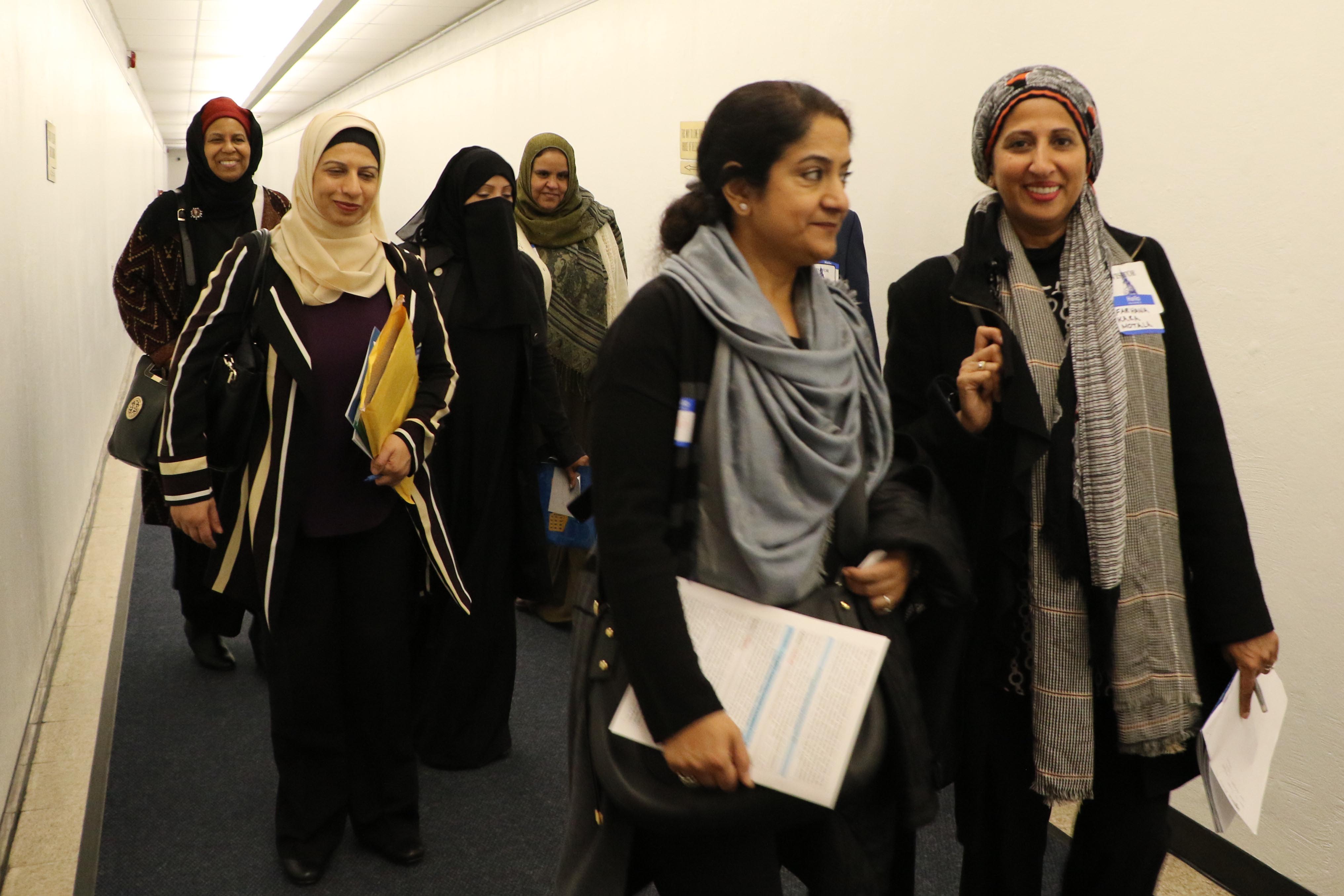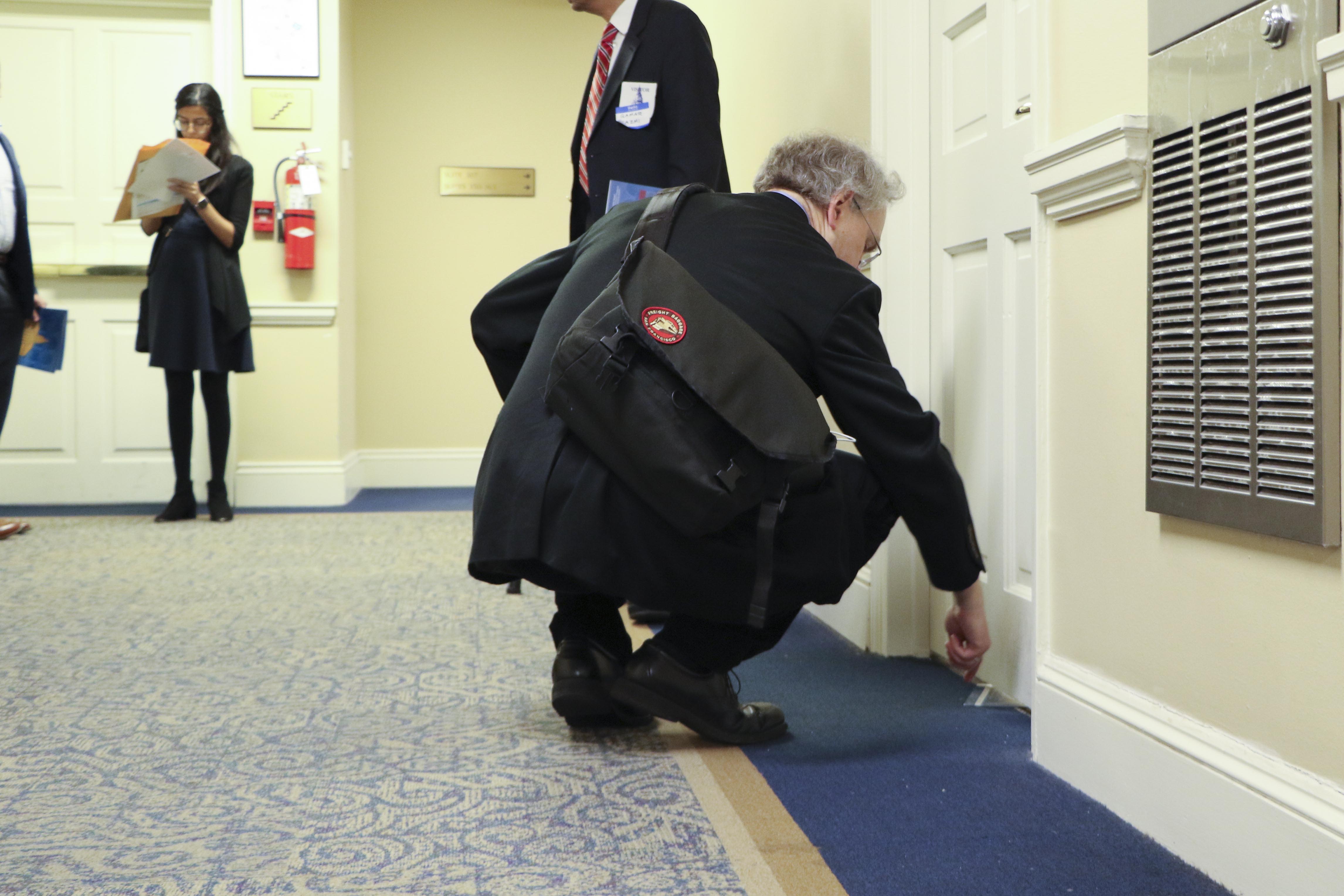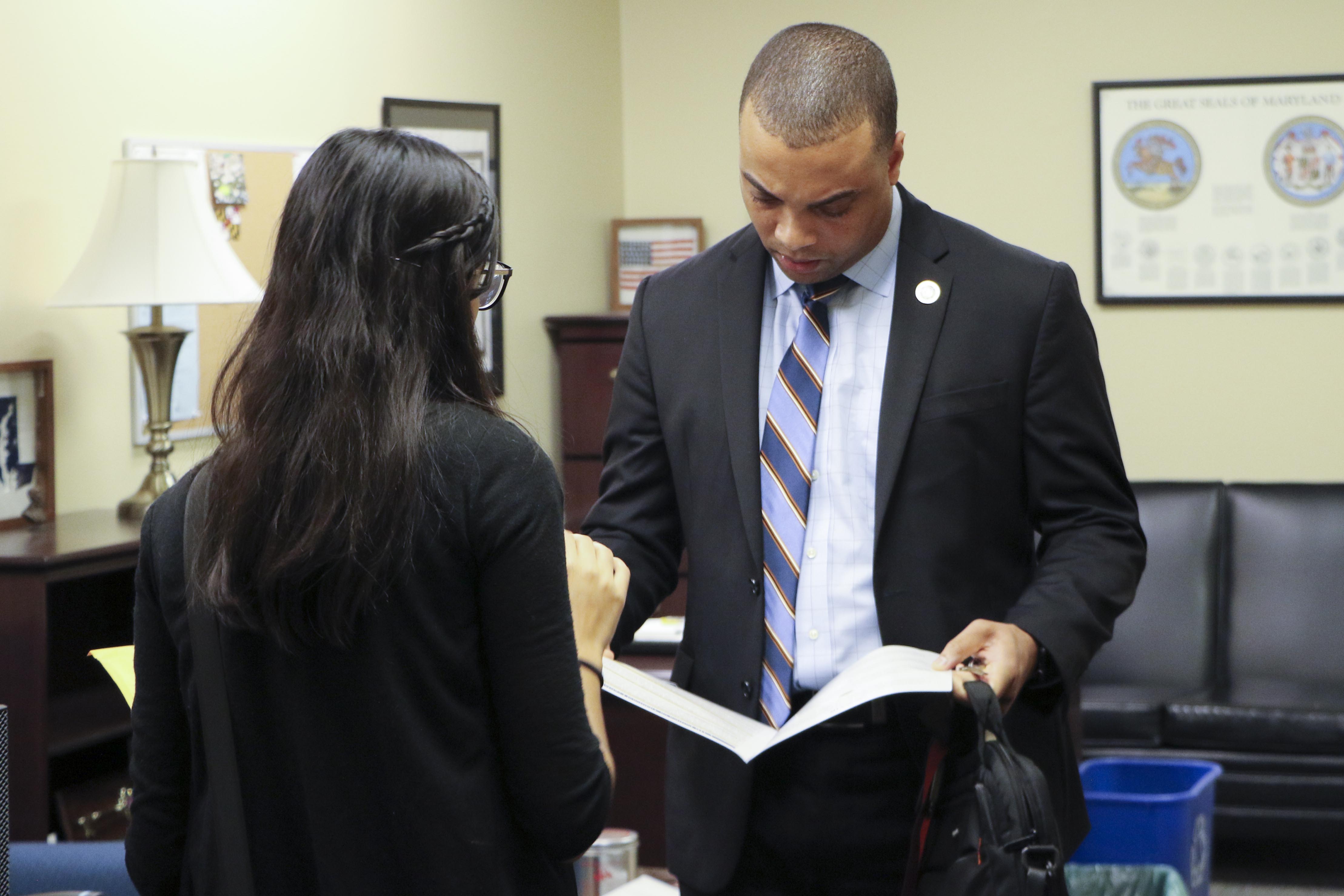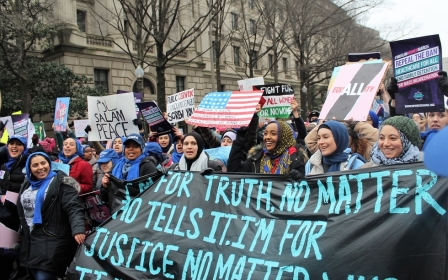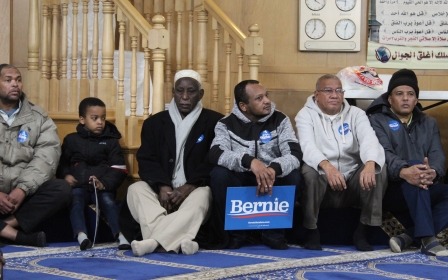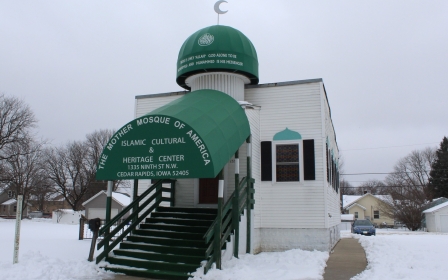'We want our voices heard': Muslims in Maryland showcase power of door-to-door lobbying
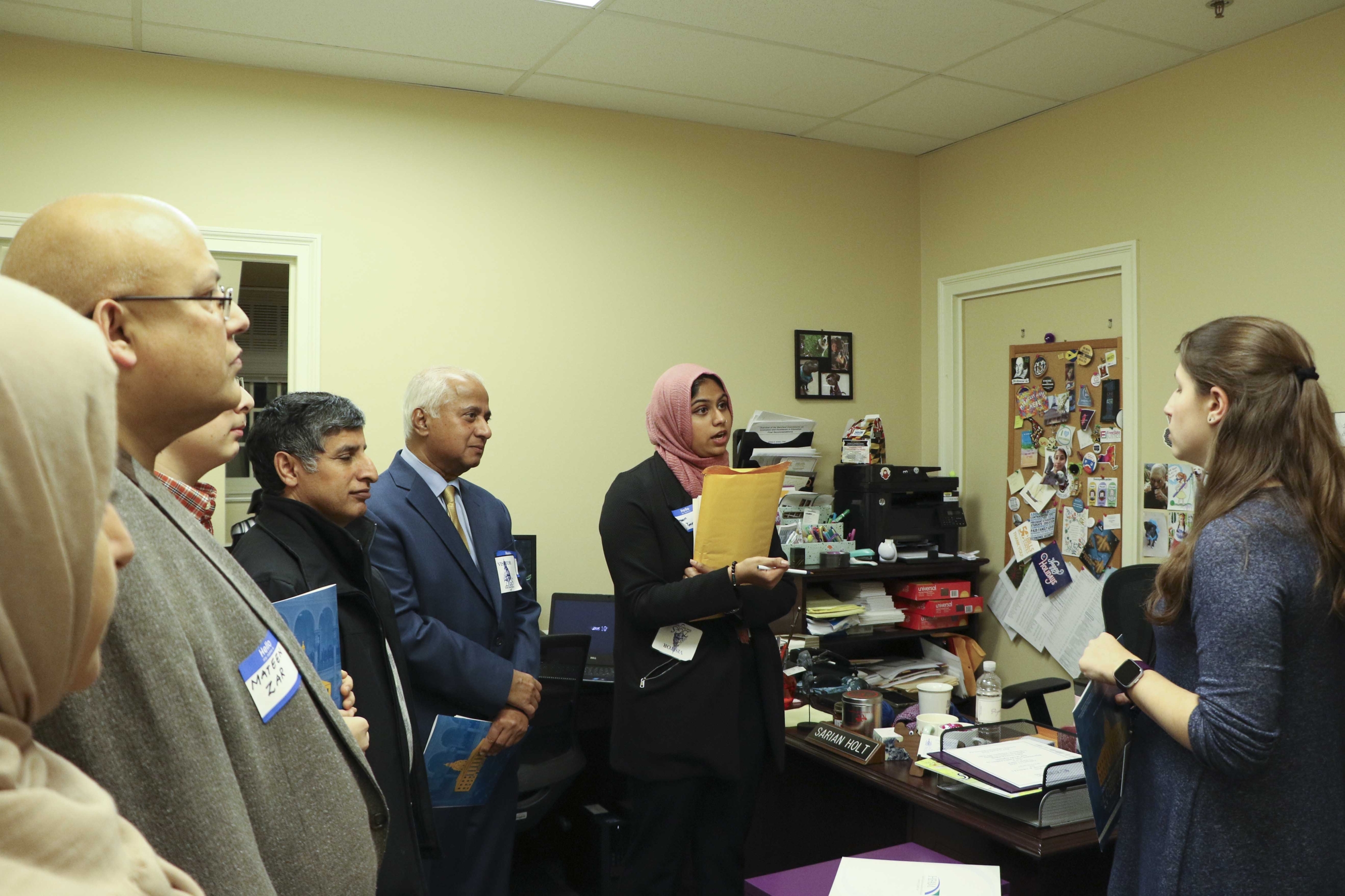
The energy was palpable at Maryland's House of Delegates late Monday, as members of the Muslim community hurried through the building's hallways and knocked on doors, trying to lobby politicians on key bills and issues under consideration in the Maryland General Assembly.
Groups of Muslims, both young and old, arrived in the state capital earlier in the day with a key aim in mind - to meet with lawmakers and their staffs to discuss how they planned to strengthen hate crime laws and ask what they were doing to oppose ineffective and unconstitutional "countering violent extremism (CVE)" programs.
As they entered to register for the event, the activists - representing a diverse range of Muslims sects and ethnicities - were given a packet on some of the key issues they needed to discuss before they rushed off to find delegates willing to hear them out.
'Our goal is to ensure that our communities are visible and engaged and our voices are being heard'
- Zainab Chaudry, CAIR's Maryland outreach director
The event, co-organised by the Council of American-Islamic Relations (CAIR) and the United Maryland Muslim Council, is an annual day of lobbying aimed at trying to empower the Muslim community.
Organised lobbying campaigns are rarely seen in Muslim-American communities.
New MEE newsletter: Jerusalem Dispatch
Sign up to get the latest insights and analysis on Israel-Palestine, alongside Turkey Unpacked and other MEE newsletters
"We want to encourage civic participation; we want to make sure that the Muslim voice is heard," Zainab Chaudry, CAIR's Maryland outreach director, told Middle East Eye.
"Our goal is to ensure that our communities are visible and engaged and our voices are being heard."
Hate crime bills
In one of the activist groups, Eimaan Imran, a legislative intern with CAIR, led the charge and walked her group through a well-lit underground tunnel connecting the historic Senate building to the House of Delegates building.
There, they began knocking on the doors of the delegates in their offices.
As the time was well past 5pm, some of the delegates had already left for the day.
For those who were not present, the instruction was clear: Slip literature under the doors so it will be the first thing they see the next morning.
Two of the bills on the agenda were on the issue of hate crimes, a subject federal law enforcement has appeared to play down in the past.
In a report, the FBI reported that in 2018 no hate crimes took place in more than 70 cities and 15 counties across Maryland, a state of more than six million people.
'Everybody should feel secure about who he or she is, whatever ethnicity, race, community, religion,'
- Mike Ghouse, founder Center for Pluralism
"We know for a fact that's not the case," Chaudry said. "However, the burden of proof to show that there was a hate crime that occurred is so great that these crimes were not prosecuted the way that they should be."
For the delegates Imran and the other activists did manage to meet, they were mostly welcomed and listened to. Some even agreed to support the bills for which they were advocating.
"If it makes it out of committee and goes to the floor, she'll certainly vote for it," said a legislative staffer for delegate Bonnie Cullison, who represents the state's 19th district, regarding the hate crime bills.
Mike Ghouse, who runs the non-profit Center for Pluralism, said he was proud of the efforts being undertaken by Maryland's embattled Muslim community.
"It is really about how do we build a society, a cohesive America where nobody has to feel tension or apprehension in any way," Ghouse told Middle East Eye.
"Everybody should feel secure about who he or she is - whatever ethnicity, race, community, religion."
'Shaping public policy'
Out of all the bills that were up for discussion, the one that would have the biggest effect on the community was Senate Bill 580, otherwise known as a countering violent extremism bill.
CVE began as a federally funded program used to root out radicalism; it ended up being used to target, survey and entrap members of the Muslim community, as well as other minority communities.
It has since spread to states that have tried to create their own versions, and as in the case of the bill in Maryland, they often try to use different wordings.
Senate Bill 580 was created by Maryland Senator Eric Luedtke as what was described by Maryland Muslims as a well-intentioned step to combat white supremacy that suffered unintended negative consequences.
'That's just one example of how when we engage with our lawmakers ... how our communities can have such a powerful role to play to shape public policy'
- Zainab Chaudry
The community members went to Luedtke's office and discussed their issues about the bill and how it could be used to further survey and target Muslims.
In response, Luedtke came up with revisions that would address those issues, which was seen as a positive step and a success on the Muslim community's part.
"That bill is not going to pass as is. And it is going to be revised," Luedtke said at a reception after the lobbying session.
CAIR and the United Maryland Muslim Council have yet to give a full response to the amendments of the bill, but are hopeful their efforts will stop the bill from being voted on as originally introduced.
"That's just one example of how when we engage with our lawmakers, and we make our voices heard, how our communities can have such a powerful role to play to shape public policy," Chaudry said.
Middle East Eye delivers independent and unrivalled coverage and analysis of the Middle East, North Africa and beyond. To learn more about republishing this content and the associated fees, please fill out this form. More about MEE can be found here.


